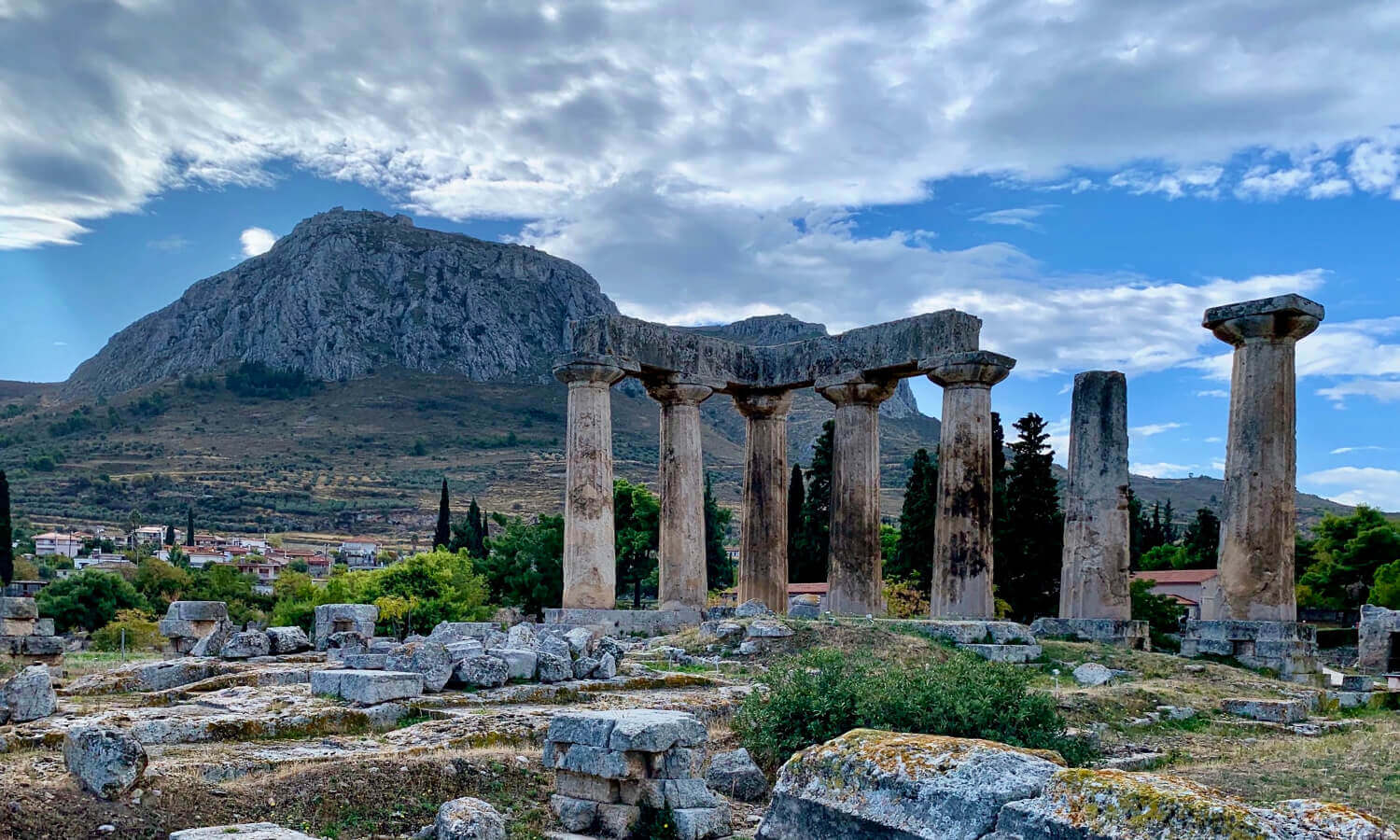
The Roman province of Achaia had Corinth as its capital in the first century AD. The city’s mixed population, riches, and idolatry encouraged illicit sexual behavior. The epicenter of this impure behavior was the goddess Aphrodite’s shrine. Thousands of people flocked there to worship the goddess, while hundreds of priestesses indulged in prostitution.
God used the apostle Paul on his second missionary voyage to Corinth, where he established a church (Acts 18:1-11; 1 Corinthians 3:6).
Later on, this church’s [lack of spiritual growth] made it possible for its cultural setting to have an impact on it (1 Corinthians 3:1). In order to address and settle various issues and queries that had arisen in this church, Paul addressed a letter. Furthermore, this message still imparts important lessons to us despite being inspired by God.
- In Christ, we are holy and called to be holy (1 Corinthians 1:1-9)
- Christ is the sole foundation of the Church (1 Corinthians 1:10 – 4:21)
- Our body is part of the body of Christ (1 Corinthians 5:1 – 6:20)
- We must be imitators of Christ (1 Corinthians 7:1 – 11:1)
- The Church of Christ is characterized by love, decency, and order (1 Corinthians 11:2 – 14:40)
- The resurrection of Christ is evidence of our resurrection (1 Corinthians 15:1 – 58)
In Christ, we are holy and called to be holy (1 Corinthians 1:1-9)
God [proclaims a sinner righteous] and sets him apart for Him (= sanctifies him) when Christ saves and accepts him into his church. The Christian is called to live exclusively for God because of this. Thus, prior to correcting the Corinthian church, Paul describes them as sanctified in Christ—that is, as individuals who have been fully blessed by Christ alone. He therefore reminds them of his exhortation to live a holy life.
Christ is the sole foundation of the Church (1 Corinthians 1:10 – 4:21)
Known as “Chloe’s people,” a few Corinthians claimed that there was conflict and division inside the church. Due to pride, some claimed to follow Paul, while others claimed to follow Apollos, Peter, and still others claimed to follow Christ based on their own discernment. Paul, in contrast, proclaimed that Christ alone is the cornerstone of the church and that God’s power and wisdom are found in the crucified Christ. Everyone else is merely one of Christ’s servants and collaborators.
Our body is part of the body of Christ (1 Corinthians 5:1 – 6:20)
In the church, sexual immorality has been tolerated. They had accepted the traditions of certain “brothers” and had even put up with incestuous relationships. They no longer thought that the physical body would be raised from the dead, which was the reason. Paul asserted, however, that the body of a Christian is not for sexual sins but rather for Christ; it is a part of His body and the Holy Spirit’s temple. As a result, the Christian does not possess his body because God purchased it and [He will raise it from the dead].
We must be imitators of Christ (1 Corinthians 7:1 – 11:1)
Paul wants to respond to the inquiries from the Church. They said that “everything is lawful,” and violating their freedom upset other people’s consciences.
But according to Paul, not everything is beneficial or constructive (1 Corinthians 10:23). He counsels them to do everything in their power to exalt God and reflect the nature of Christ, regardless of whether they get married or not, as long as they avoid ruining the brothers’ consciences in the process. Because he did not exercise his rights as an apostle, Paul provides an example of following in Christ’s footsteps.
The Church of Christ is characterized by love, decency, and order (1 Corinthians 11:2 – 14:40)
Public worship services had become indecent due to the rift within the church. Disorder had been brought about by the mishandling of spiritual gifts and the unworthy consumption of the Lord’s Supper.
Paul taught the Corinthians a still better way—the love of Christ—while they searched for “the higher gifts” (1 Corinthians 12:31). The church relies heavily on this genuine love because it is the only way that worship sessions, the Lord’s Supper, and the sharing of spiritual gifts can all be done in a civil and orderly manner.
The resurrection of Christ is evidence of our resurrection (1 Corinthians 15:1 – 58)
It was easy for them to surrender their bodies to immorality since the church had been duped by teachings that contradicted the resurrection of the dead.
Paul, however, reminds them of what they initially heard from him—namely, the resurrection of Christ, a crucial tenet. They were rejecting Christianity and the resurrection of Christ if they did not think that the dead would rise. Paul declared that Christ is the firstfruits of all those who have died and will rise again in the future era, providing proof that Christ was truly raised from the grave.
“I, Paul, write this greeting with my own hand,” he writes as he closes the letter. Let him be damned if he has no love for the Lord. Come, Our Lord! May the Lord Jesus’ grace envelop you. I send you all my love in Christ Jesus. Amen. 16:21–24 in 1 Corinthians.





